UN in Ghana reaffirms its support to Ghana in the wake of the Akosombo dam spillage disaster.
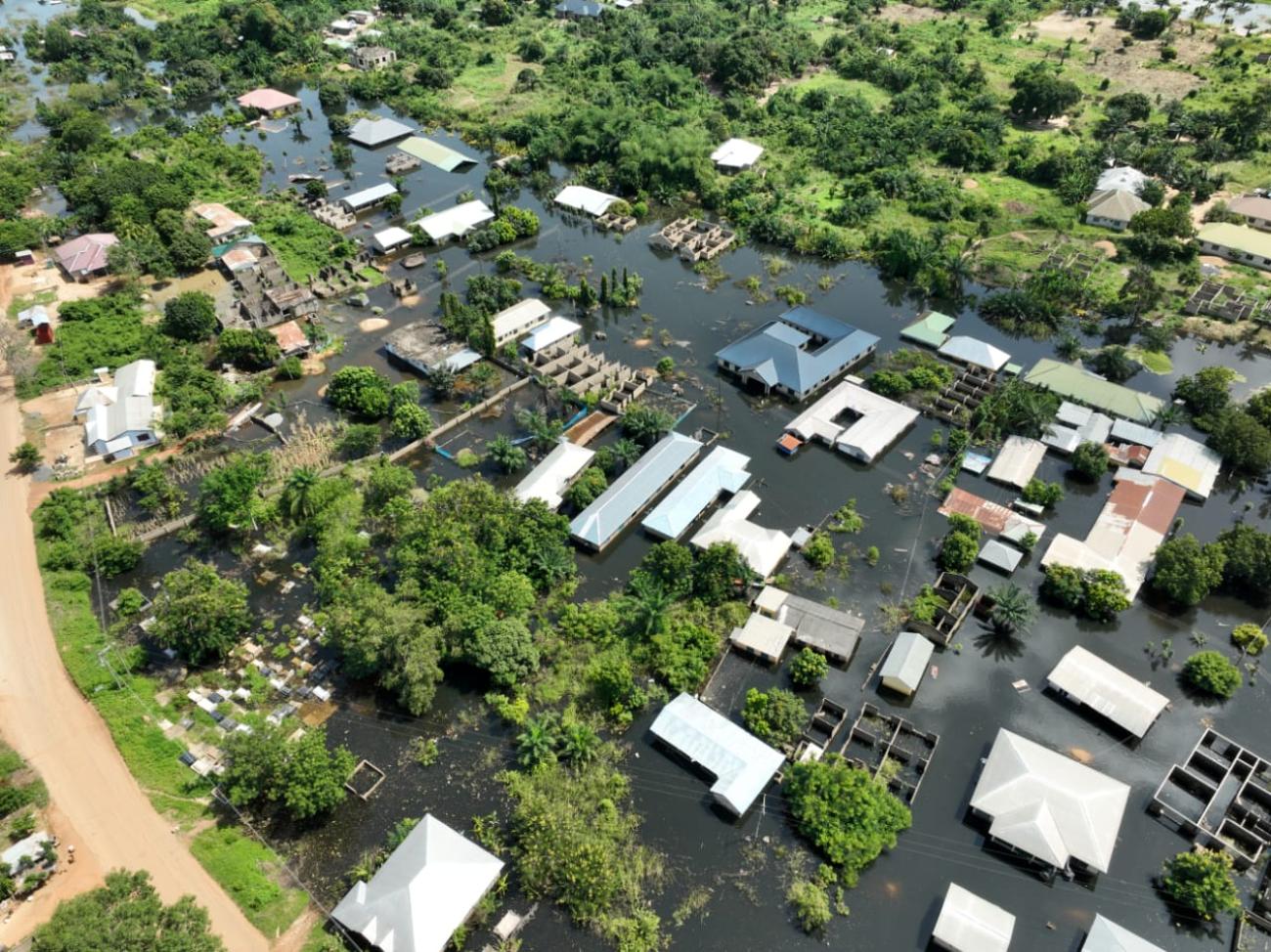
The magnitude of the flood is alarming, and it calls for a collective effort from local and national stakeholders to address the immediate and long-term needs.
The United Nations in Ghana has reaffirmed its support to the Government and people of Ghana in the wake of the Akosombo dam spillage disaster that has displaced an estimated 35,857 people. Led by the Resident Coordinator, Mr. Charles Abani, a group of UN Heads of Agencies from WFP, UNICEF, WHO and IOM, recently visited Agbetikpo in the North Tongu district of the Volta region, to gain a thorough understanding of the humanitarian needs of the affected communities and assess the UN’s immediate interventions.
At the time of the visit, the UN team from the World Food Programme had started registering 120 households from four communities, Memodzi, Fumadokope, Dzimakope and Sikor, that had been relocated to the Agbetikpo haven in the North Tongu district of the Volta region. Out of the 120 households, some 97 received cash transfers from WFP. The funds will support their immediate food needs and strengthen their financial resilience.
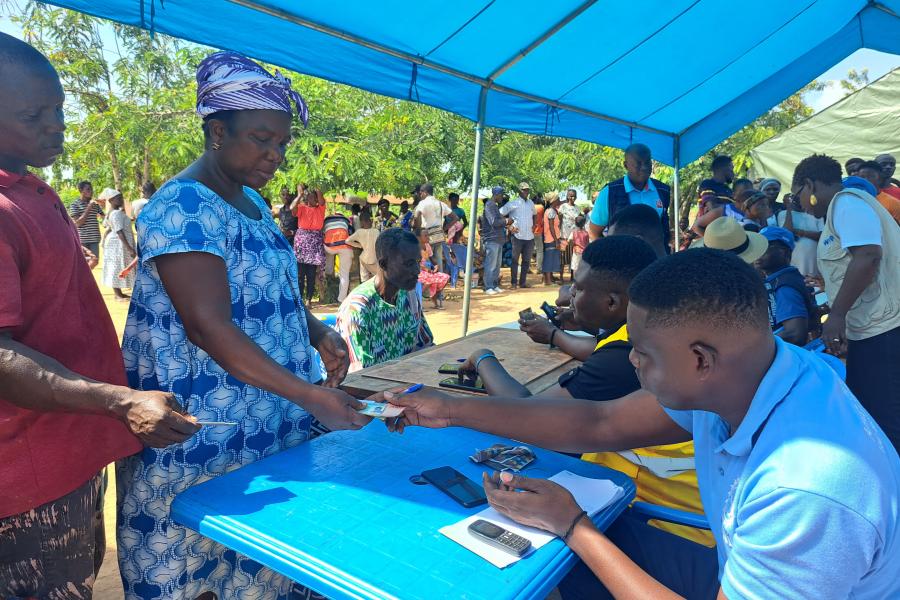
The registration exercise by WFP is a stopgap measure as IOM prepares to lead the registration process which will allow humanitariaqn agencies to provide more support to affected areas.
While cash transfers were taking place, Yedent, a Ghanaian agro-group of companies, in response to a request from WFP, was transporting cartons of Tomvita X blended cereal, maize grits and maize flour, to NADMO’s Emergency Operational Centre at Battor, for donation to the affected people.
Mawuena, a mother of three, is one of the affected people dwelling at the Agbetikpo haven located at the Agbetikpo DA Basic School. She was forced to leave all her belongings behind at her home in Fumadokope to find refuge from the flood. The 3-block school hosts over 400 people affected by the Akosombo dam spillage and due to lack of space, Mawuena with her three children now sleep in an unfinished building adjacent to the Agbetikpo DA Basic School. She and her three children sleep in a single room shared with 13 other people from other parts of the affected areas. The room has no windows and doors, exposing them to insect bites, particularly mosquitoes. “I want to go back home but I cannot because my house is in water” she says. According to Mawuena, life at the haven is unbearable. She, like many others who are being sheltered at Agbetikpo haven, needs support to enable her to live a normal life.
The Heads of Agencies earlier visited one of the communities impacted by the floods. Here, they stood at what appears to be a riverbank to observe the devastation caused by the water. The community was completely submerged in water, with abandoned household items including beddings such as mats and mattresses that lay forsaken on the water’s edge, providing a stark testament to the devastation wrought by the floods.
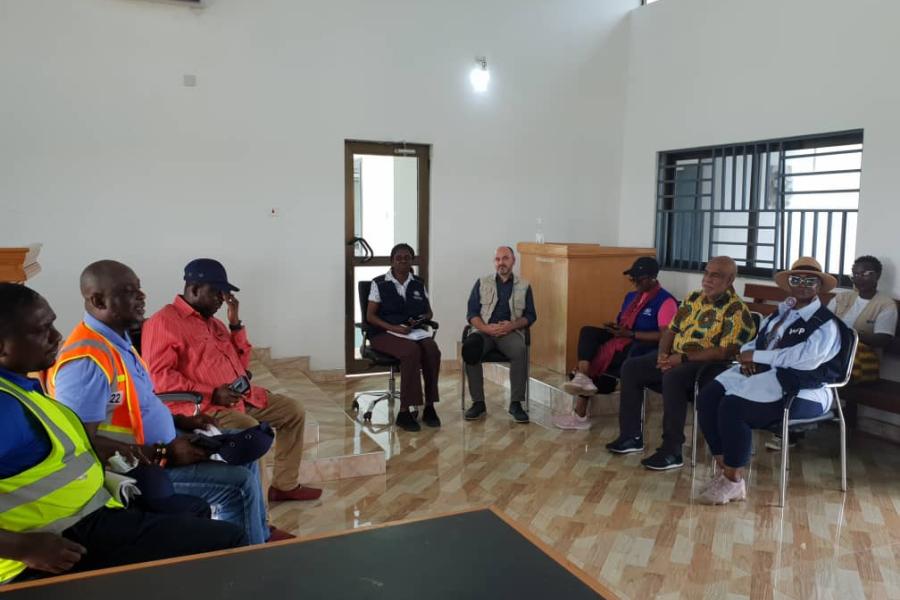
The Disaster Management Organisation (NADMO) officials on the ground briefed the UN team. Present at the briefing were the North Tongu District Chief Executive, Hon. David Osborne Fenu, the Director General of NADMO, Hon. Eric Nana Agyeman Prempeh and his Deputy, Mr. Seji Saji Amedonu, and Ing. Kwame Darkwah, Principal Engineer Generation and Systems Planning/Emergency Preparedness Planning Coordinator. They informed the team about the pre-emptive measures taken by NADMO to prepare the rescue team. For instance, having been alerted of the controlled spillage by the Volta River Authority months earlier, NADMO conducted several simulation exercises to identify the havens, and be conversant with the methods of relocating displaced people to curtail the impact of the flooding on lives. “This made the movement of people from affected communities to the eight havens easier” says Mr. Seji Saji Amedonu. Already, mobile health clinics have been set up in the havens and sensitization on good sanitary practices is ongoing. The team also visited the Emergency Operations Centre activitated at the Tongu District Assembly from where NADMO receives, disseminates and monitors all information on the humanitarian crisis.
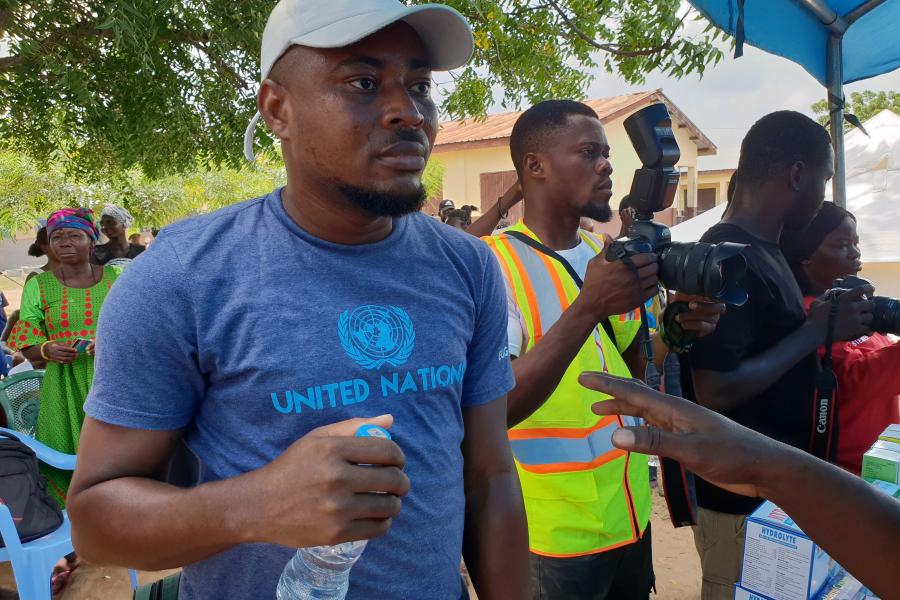
Flood-affected communities also require psychosocial support to help them deal with crisis stress. At Agbetikpo haven, Dr. Eugene Tornyeavah, a Clinical Psychologist from the 37 Military Hospital and a native of the area has joined the Ghana Health Service team to provide health care as well as services to protect and improve the mental and the psychosocial wellbeing of people affected. Dr. Tornyeavah says he responded to the call for volunteers by the Ghana Registered Nurses and Midwives Association and the Ghana Medical Doctors because he felt it was the right thing to do. “We are registering a lot of chronic cases such as hypertension and diabetes. Malnutrition and anemia are also high” he said, adding that “what we are seeing is a huge problem” and requires all the support to avert further catastrophe.

The UN has donated hundreds of critical relief items including dignity and hygiene kits, tents, medical supplies such as cholera investigation kits and several boxes of water purification tablets (Aquatabs to prevent the outbreak of waterborne diseases including cholera), and several cartons of drinking water to support affected communities.
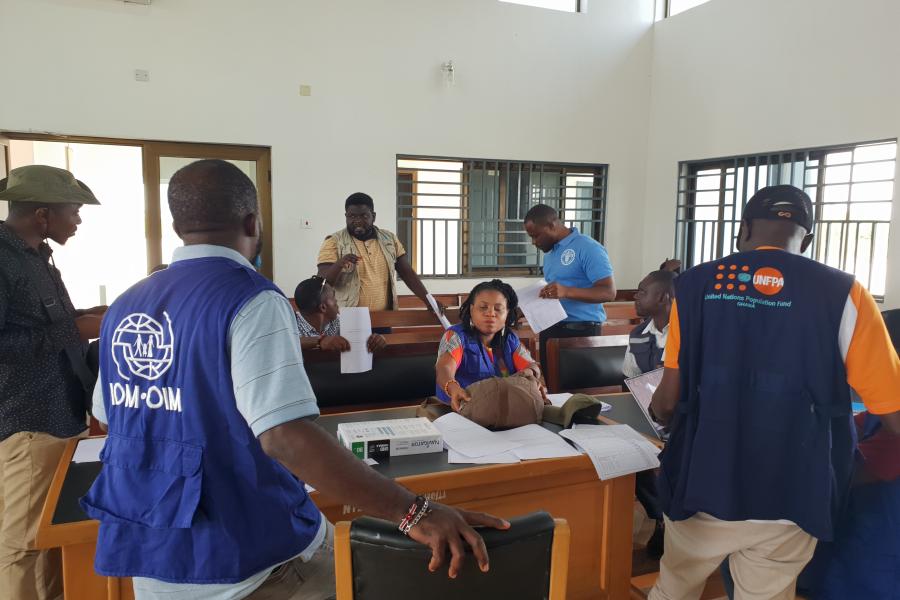
To determine the full extent of the damage and further needs of the affected communities as well as provide onsite capacity and systems development to key partners, the UN through its Rapid Assessment Team of the Inter Agency Working Group on Emergencies (IAWGE), has conducted an assessment in three most affected districts (North Tongu, Central Tongo and South Tongu) has conducted an assessment in three districts to gather reliable and quality data that will inform its humanitarian response to affected communities. The information gathered will also guide the UN in Ghana’s long-term recovery efforts and support to government.
Furthermore, the UN is exploring funding windows to mobilize additional resources necessary for its response efforts.
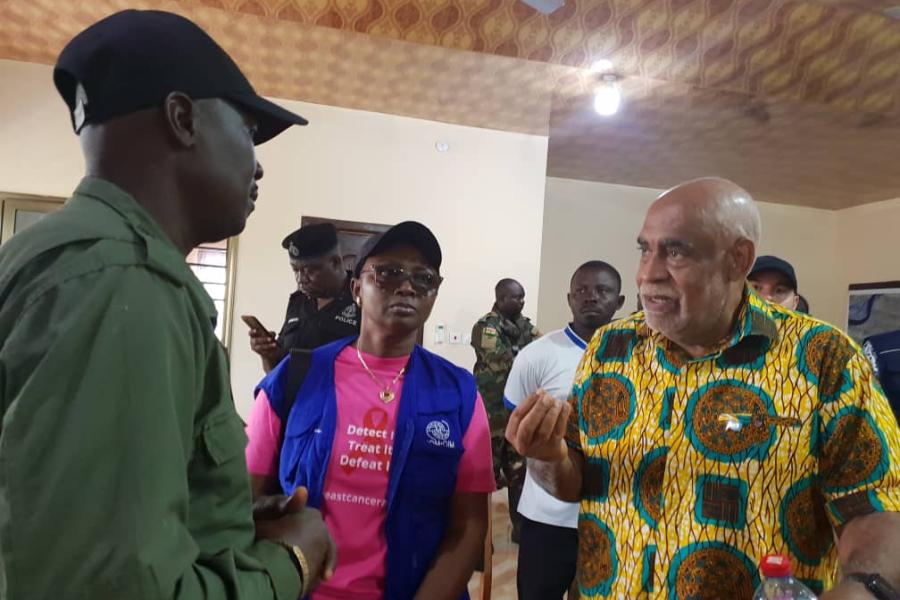
According to NADMO, there is a need to heighten communications and advocacy around resource mobilization and to support ongoing work.







